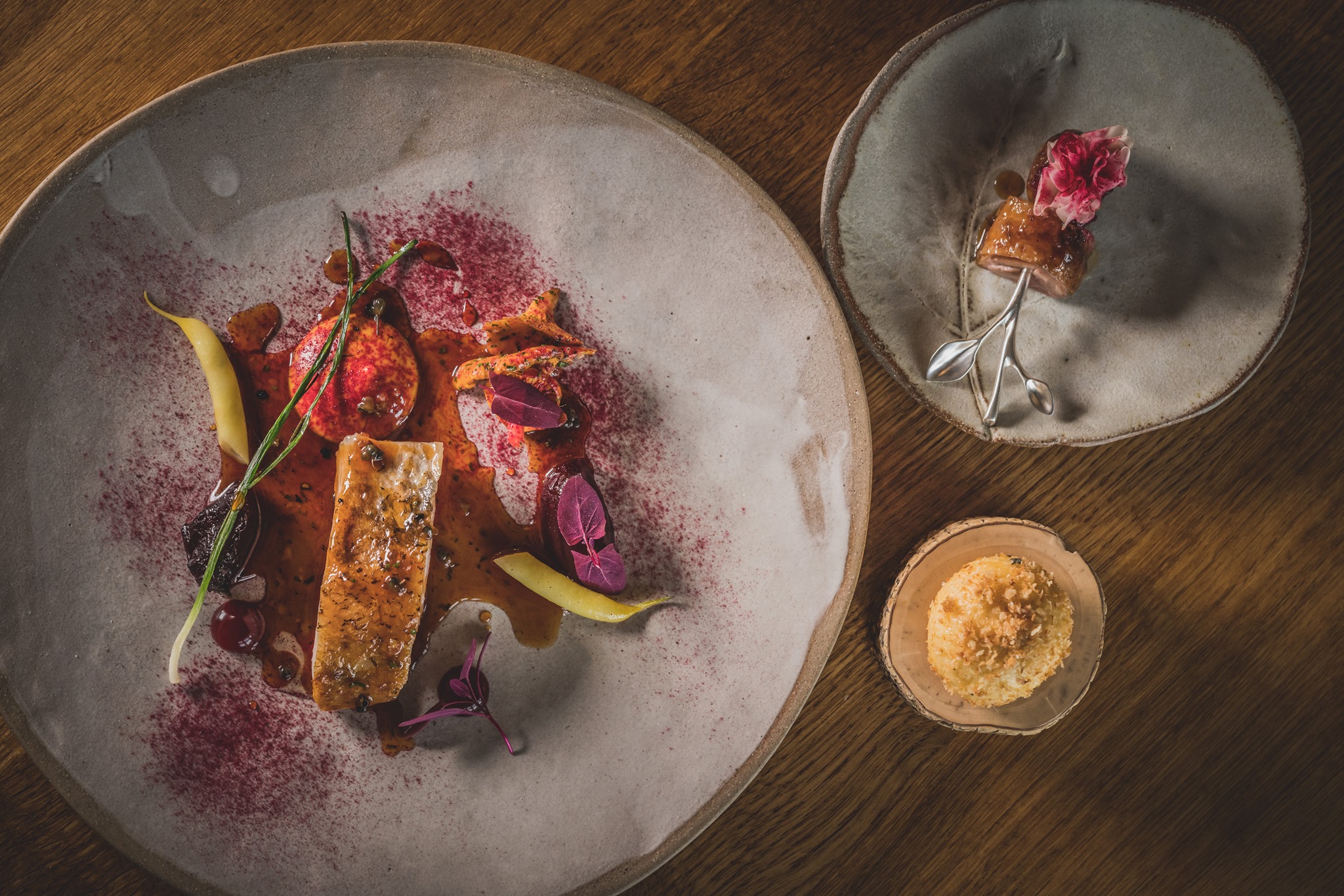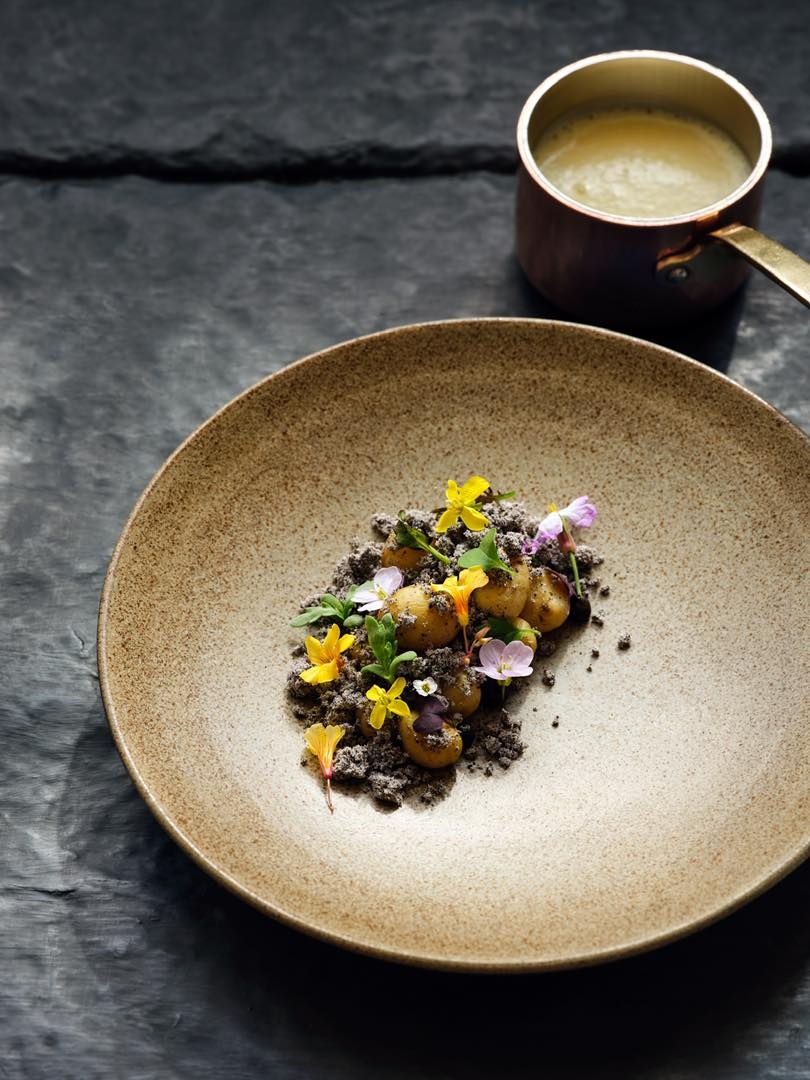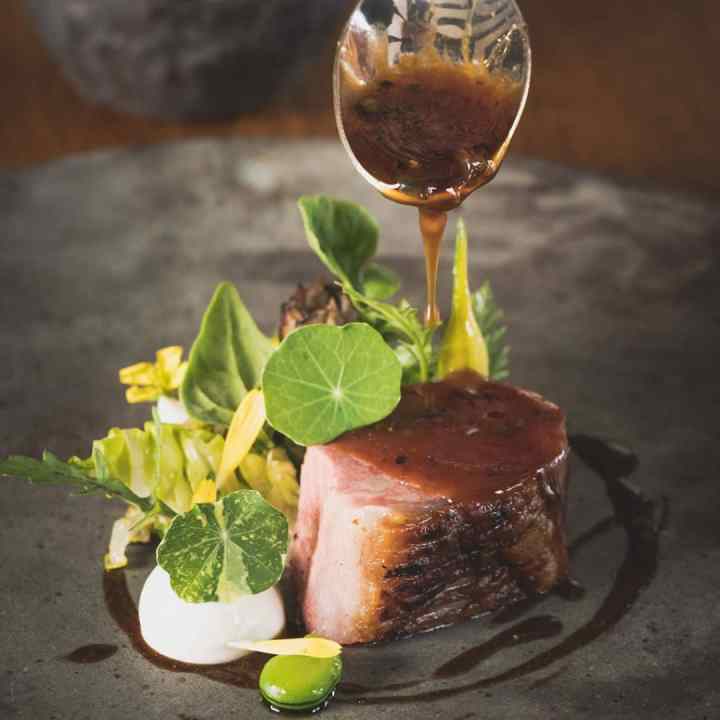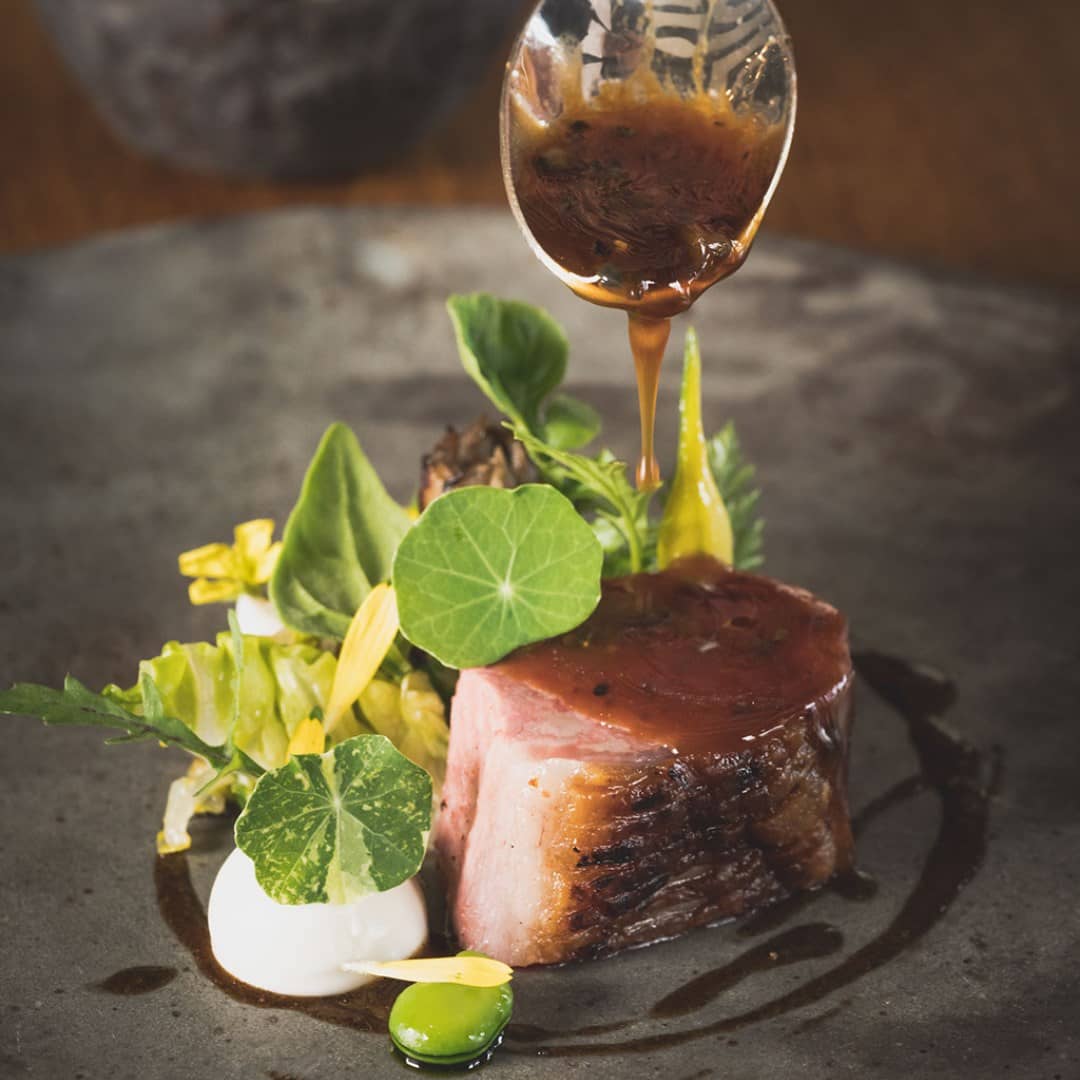If you only read restaurant reviews, you might be forgiven for thinking that the North is a culinary wasteland: despite a few intrepid reviewers venturing further than the Watford gap, restaurant reviewing remains firmly London-centric.
But there is life (and culinary prowess) beyond the outer zones of the London underground. Last month Moor Hall in Lancashire was named ‘National Restaurant of the Year’ at the prestigious Estrella Dam National Restaurant Awards.
When it comes to the top spot, this is nothing new: Moor Hall has retained the top spot since 2019, when the last awards took place. The awards are voted for by UK chefs, restaurateurs and food writers, and following a break in 2020, during a year in which the pandemic forced restaurants to close, reopen, close again, and perform whiplash pivots, the awards returned for 2021.

This is no London exodus or spill-over
Despite Moor Hall’s previous top ranking, the 2019 awards were dominated by London restaurants. But the tide has turned. For the first time, there are more restaurants in the north of England on the prestigious list than from London. Of the top five restaurants in this year’s awards, only one isn’t Northern – Clare Smyth’s Core in Notting Hill came in at number three. In second place is The Angel at Hetton in North Yorkshire, headed up by Michael Wignall; at number four is Kenny Atkinson’s House of Tides on Newcastle’s quayside, and at five, is Simon Rogan’s L’Enclume in Cartmel.
For those of us living (and eating) in the North of England, this success is probably no surprise: the Northern culinary scene has been going from strength to strength – and none of these restaurants are new. Moor Hall opened under its new ownership in 2017, House of Tides back in 2014, and L’Enclume has been lauded since its opening almost 20 years ago.
But this year has seen Northern restaurants rocket up the rankings, as well as receiving other accolades. The Angel at Hetton has not only jumped from 56th position in 2019, but was named Gastropub of the Year. Tommy Banks took 10th place and 51st place with his restaurants The Black Swan in Oldstead, North Yorkshire, and Roots in York, but was also named Restaurateur of the Year. Mana in Manchester has climbed from 73 to 11, The Man Behind the Curtain in Leeds went from 91 to 19th place, and there are eight brand new Northern entries, including Gary Usher’s Sticky Walnut in Chester, Erst in Manchester, and Hrishi in Cumbria.
Moor Hall is headed up by Chef Mark Birchall, for whom local provenance is important. Many of their ingredients are from the five-acre gardens which surround the 14th century building which houses the restaurant, with the vast majority of the rest of their food being sourced from Lancashire; recently the restaurant began producing their own cheese and charcuterie on site. Birchall himself was born in Chorley, and trained in nearby Runshaw, so is as local as his ingredients.

But it would be wrong to pick Birchall out as a lone Northern ranger: House of Tides owner Kenny Atkinson is Newcastle born and bred, and Tommy Banks was raised in the North Yorkshire village of Oldstead, where his restaurant now stands. Much of Banks’ Black Swan’s vegetable produce comes from the five acre kitchen garden, which also supplies Banks’ central York restaurant, Roots. Gary Usher, who moved to North Wales as a child, opened his first restaurant – Sticky Walnut – in Chester, but has since taken over the North West with his crowd-funded restaurants, with premises in Didsbury (Hispi), Merseyside (Burnt Truffle), Liverpool (Wreckfish), Prescott (Pinion) and Manchester (Kala).
Simon Rogan may not be from the Lake District (he grew up and trained in Southampton), but his passion for local produce is borne out in his flagship Cartmel restaurant. At l’Enclume, the food is exclusively sourced from the North West, and 90 per cent of it comes from the restaurant’s Cartmel valley farm. Rogan is known for his unusual ingredients, from elkhorn fern to Japanese wineberries, and these are all grown on the farm, with the restaurant able to move them from the ground to a diner’s plate in under an hour.
This is no London exodus or spill-over: this is a sea change, but a sea change that has been building for the last decade. Northern restaurants are not simply imitations or facsimiles of their London and Southern counterparts. They have grown and been built up by chefs that understand and care about heritage, place and character, as well as having obvious local pride. These are restaurants that food lovers will seek out and travel to, for distinctive and impressive Northern produce and skill – and this year’s National Restaurant Awards have recognised that.







Comments